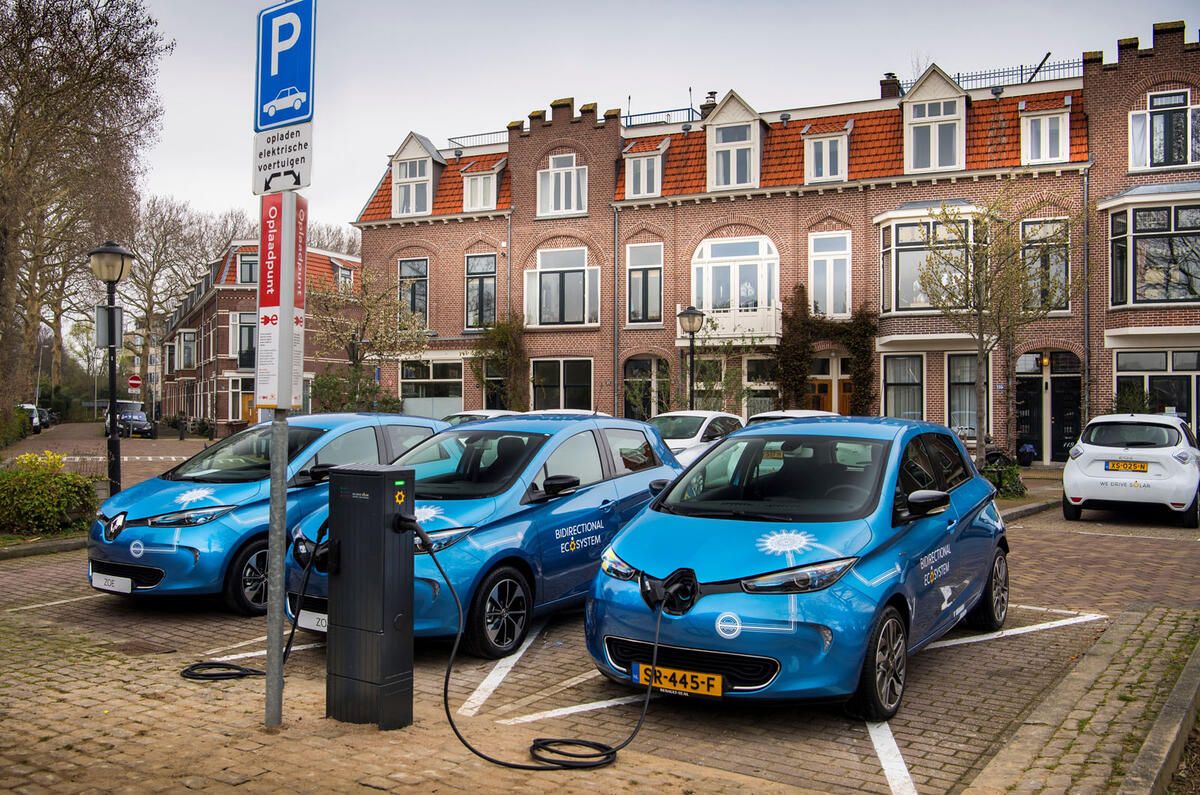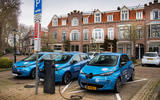Renault has launched a revolutionary pilot scheme that aims to prove the feasibility of vehicle-to-grid charging systems by placing energy storage units aboard electric vehicles (EVs).
A fleet of Renault Zoes have been adapted to enable reversible charging, which could help to bolster electricity supply at peak times. Renault anticipates that the technology will be ready for installation on customer vehicles as early as next year.
The system enables electric vehicles to stockpile energy supplies at times of low demand and then transfer electricity back to the grid when appropriate. By moderating power usage in this way, it could reduce strain on national electricity infrastructure, promote energy conservation and save its users money on running costs.
The first trials begin today in the Dutch city of Utrecht, in partnership with We Drive Solar, and on the Portuguese island of Porto Santo, where the scheme is backed by energy supplier Empresa de Electricidade da Madeira.

Renault plans to introduce 15 adapted Zoes across Europe throughout 2019, with tests scheduled to take place in France, Germany, Switzerland, Sweden and Denmark.
According to the French car maker, the trials aim to “measure large-scale feasibility and potential gains”.
Gilles Normand, Renault's director of electric vehicles, said: “Vehicle-to-grid charging is a key pillar of the smart electric ecosystems that Groupe Renault has set up.
“We have chosen onboard technology that also optimises the cost of recharging stations and thus facilitates large-scale development.”
A vehicle-to-grid charging system being developed by Nissan is similar in principle but necessitates the installation of an energy storage unit in EV owners’ homes rather than in the vehicles.














Join the debate
Add your comment
Battery Capacity
It makes you realise how much energy car batteries hold when you look at the numbers on this. I realised my i3 (and I've only got the small 60ah one) could power my flat for about 3 days, so having it just do the peak loads between 7 and 10 in the evening is definitely doable, even after my commute. And yes, before someone says it, I have underground parking so yes I can be connected to the grid when needed.
It sounds very much like the Nissan V2G system
It sounds very much like the Nissan system that was much publicised a year or two ago. I don't recall this "necessitating an energy storage unit being installed in the home" - why bother when the car battery itself is that storage device?
I love the potential of these systems to power the home using cheap electricity purchased at night, always assuming there's some energy remaining for driving. For me, this dual use would certainly make an EV much easier to justify and would be a perfect match for solar PV!
LP in Brighton wrote:
Indeed, this has great potential. A house can become its own mini grid of energy capture and storage.
On an even larger scale this could be used to reduce peak loads on the grid - imagine 1m BEVs plugged in, at a moment of peak load all instantly switching to SUPPLY the grid with 1kW. This would reduce the peak on the grid, EASING the load on powerstations. Our grid infrastructure has to be designed to cope with peak load, meaning there is a large amount of redundancy day to day.
All long term future stuff, but claims that EVs would overload our national grid neednt be true.
Bob Cat Brian wrote:
agreed - and the National Grid already confirmed its not an issue to charge lots of EVs - if you goto youtube and check out the FullyChargedShow channel there is an interview with the National Grid. www.youtube.com/watch?v=vX0G9F42puY